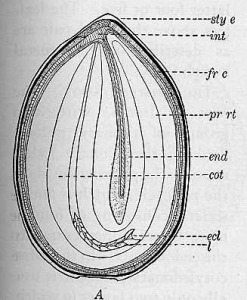 Hemp seeds provide more nutrition then any other single food on the planet.
Hemp seeds provide more nutrition then any other single food on the planet.
Hemp oil’s primary value is its high content of the two essential fatty acids (EFAs) Omega-3 and Omega-6. Essential to tissue growth and metabolism, these critical EFAs cannot be produced by the body and must instead be present in the diet. Intake of both EFAs in sufficient amounts and proper balance is essential for prevention or treatment of a wide range of conditions, including diabetes, cardiovascular disease, menopause, osteoporosis, atopic eczema, psoriasis, and acne.
Hemp oil or hempseed oil is obtained by pressing hemp seeds. Cold pressed, unrefined hemp oil is dark to clear light green in color, with a nutty flavour. The darker the color, the grassier the flavour. The fresh leaves can also be consumed in salads. Products include cereals, frozen waffles, hemp milk ice cream, hemp tofu, and nut butters. A few companies produce value added hemp seed items that include the seed oils, whole hemp grain (which is sterilized by law in the United States, where they import it from China and Canada), dehulled hemp seed (the whole seed without the mineral rich outer shell), hemp flour, hemp cake (a by-product of pressing the seed for oil) and hemp protein powder.
Hemp milk or hemp seed milk, is a drink made from hemp seeds that are soaked and ground into water, yielding a creamy nutty beverage. It is marketed in health and fitness publications as a “new health food darling”. Hemp milk also contains 10 essential amino acids, making it a good vegan source of protein as hemp protein does not contain phytates, enzyme inhibitors found in some soy protein that can interfere with the absorption of essential minerals. Hemp protein may also be more digestible than soy protein because unlike soy, it does not contain oligosaccharides, complex sugars that can cause flatulence if not properly broken down during digestion.
See Hemp Foods for sale online.
Updated daily
[pt_view id=”c596e60621″]
